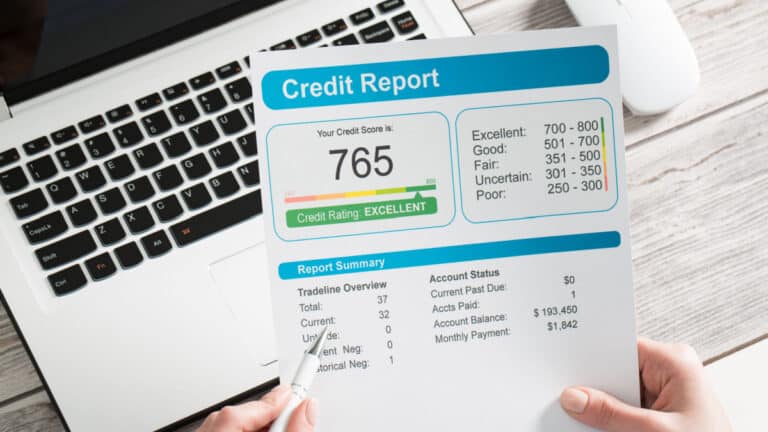What Is Term Life Insurance Made Simple in 2024

What is term life insurance? Life insurance that covers a specific period or term is known as term life insurance. The most frequently chosen terms include 10, 15, 20, and 30 years. Once the term expires, the policy will no longer be in force, and no death benefit will be paid. Permanent life insurance usually costs more than term life insurance.
Term Life Insurance Features
- Coverage: Coverage for a set period or term is provided by term life insurance, with the most commonly chosen terms being 10, 15, 20, and 30 years.
- Death benefit: In the event of the policyholder’s passing during the policy term, the designated beneficiaries will receive the death benefit. The death benefit is typically tax-free.
- Premiums: Generally more cost-effective than permanent life insurance.
- Renewability: Most term life insurance policies are renewable, meaning that the policy can be renewed at the end of the term. However, the premiums may increase at the time of renewal.
- Guarantees: Term life insurance policies typically do not have any promises. The insurer is not obligated to pay the death benefit if the insured person dies outside the policy term.
Why is it Important to Have Term Life Insurance?
- To protect your loved ones financially. If you die prematurely, your loved ones may be financially burdened. Term life insurance can help them with financial security by paying a death benefit.
- To pay off debts. If you have debts, such as a mortgage or student loans, term life insurance can help to ensure that these debts are paid off in the event of your death. Your loved ones can be buffered against financial hardship.
- To provide for your family’s future needs. By having term life insurance, you can guarantee that your family’s upcoming financial necessities are fulfilled, such as supporting college fees or purchasing a home. This provides your loved ones with the monetary stability they require to prosper and achieve their aspirations.
- To cover the cost of your funeral and other expenses. Term life insurance can help cover your funeral and other expenses, such as medical bills.
Who Should Consider Getting Term Life Insurance?
- People with dependents. Consider getting term life insurance if you have dependents, such as children or a spouse. Your dependents will be financially dependent on you, and if you die prematurely, they may be left with a financial burden. Term life insurance can help them with financial security by paying a death benefit.
- People with debts. Consider getting term life insurance if you have a mortgage or student loan. Term life insurance can help to ensure that these debts are paid off in the event of your death.
- Self-employed people. If you are self-employed, then consider getting term life insurance. You may need access to life insurance through your employer. Term life insurance can help to protect your business and your family in the event of your death.
- People who have a high-risk job. Consider getting term life insurance if you have a high-risk job, such as a firefighter or a police officer. You are more likely to die prematurely than someone who does not have a high-risk job. Term life insurance can help to provide financial security for your family in the event of your death.
- People who are trying to save for retirement. If you are trying to save for retirement, consider getting term life insurance. This helps ensure that you can reach your retirement goals.
How Much Term Life Insurance Do You Need?
The amount of term life insurance you need will depend on your circumstances.
- Your income: How much money do you earn each year? This is important to consider because your income will likely be your dependents’ primary source of financial support if you die prematurely.
- Your expenses: How much money do you spend each year? This will help you to determine how much money your dependents will need to maintain their standard of living if you die prematurely.
- Your debts: Do you have any debts, such as a mortgage or student loans? In the event of your death, someone must pay off these debts.
- The financial needs of your dependents: How much money will your dependents need to live comfortably? It will depend on their age, education level, and financial situation.
Once you have considered these factors, you can estimate how much term life insurance you need. A good rule of thumb is to get enough coverage to replace your income for at least 10 years. This will give your dependents enough time to get back on their feet financially.
For example, earning $100,000 per year and having two dependents may need $2 million in term life insurance. This would provide your dependents with $100,000 per year for 20 years.
It is important to note that this is just a general guideline. The amount of term life insurance you need will vary depending on your circumstances. It would help if you talked to a financial advisor to get help determining how much coverage you need.
Here are some additional things to keep in mind when determining how much term life insurance you need:
- Your age: The older you are, the more expensive term life insurance will be. The risk of dying prematurely increases as you get older.
- Your health: Health problems can put you in the higher risk category, and you may have to pay higher premiums for term life insurance.
- Your lifestyle: If you engage in high-risk activities, such as skydiving or smoking, you may also be considered a higher risk and may have to pay higher premiums for term life insurance.
Shop around and compare quotes from various insurers before purchasing term life insurance. It would be best to talk to a financial advisor to get help determining how much coverage you need and to choose the right policy for your needs.
FAQ:
What are the Different Types of Term Life Insurance?
There are two main types of life insurance: term life insurance and permanent life insurance.
- Term life insurance provides coverage for a specific period or term. The most common terms are 10, 15, 20, and 30 years. Once the term expires, the policy will no longer be in force, and no death benefit will be paid. Term life insurance is typically much cheaper than permanent life insurance.
- Permanent life insurance provides coverage for your lifetime. The premiums are typically higher than term life insurance, but the death benefit will be paid regardless of when you die. Permanent life insurance also includes cash value accumulation and tax benefits.
Here are some of the other types of life insurance:
- Whole life insurance: This type of permanent life insurance covers your lifetime. The premiums are typically higher than term life insurance, but the death benefit will be paid regardless of when you die. Whole life insurance also has a cash value component, meaning you can borrow money against the policy or withdraw money from it while you are still alive.
- Universal life insurance: This permanent life insurance gives you more flexibility than whole life insurance. You can choose how much you want to pay in premiums and how much you want to accumulate in cash value. This option is desirable for people wanting more control over their insurance policy.
- Variable life insurance: When selecting this choice, you have the freedom to select from diverse investment options that help increase your policy’s cash value. It is important to note that the success of your investments will impact both the death benefit amount and the cash value you receive. This type of life insurance is ideal for individuals who prefer a hands-on approach to managing their investment portfolio.
What are Drawbacks of Term Life Insurance?
- The coverage is temporary. Term life insurance covers you for a set time. If you pass away within that timeframe, your loved ones will receive the death benefit. But if you pass away after the term expires, your beneficiaries won’t receive any benefits.
- The premiums can increase. The premiums can increase at the time of renewal. The risk of dying prematurely increases as you get older.
- You may have to reapply. When your term life insurance policy expires, you may have to reapply for coverage. This can be difficult if your health has changed or you have taken on new risks.
- Pay your premiums on time. This is the most important thing you can do to maintain your policy. If you miss a payment, your policy may lapse, and you will lose coverage.
- Review your policy annually. Your financial situation and needs may change over time, so review your policy annually to ensure it is still the right fit for you.
- Let your insurer know about any changes in your health. If you become sick or injured, you should let your insurer know. It may affect the cost of your premiums or your eligibility for coverage.
- Consider a conversion option. If you have a term life insurance policy, you may have the option to convert it to a permanent life insurance policy.
- Shop around for better rates. You can shop around for better rates if your premiums get too high. Many different insurers offer term life insurance, so you should be able to find a policy that fits your budget.
By following these tips, you can help to ensure that your term life insurance policy remains in force and provides the coverage you need.
Here are some additional things to keep in mind:
- Keep your contact information up to date. Ensure your insurer has your current address, phone number, and email address. This way, they can contact you if they need to.
- Read your policy carefully. Understand the terms and conditions of your policy to know what is covered and what is not.
- Ask questions if you have any. If you have any questions about your policy, don’t hesitate to contact your insurer.
Note: Please note that the content shared in this post is not intended to be taken as financial advice. As the author, I am not a certified financial advisor, so I cannot give financial advice. It is strongly advised to consult with a licensed financial expert before making any financial investments.
Ammar has started several online businesses and is a blogger who loves providing quality content to help others. He is involved with affiliate marketing, domain names, NFTs, and cryptocurrencies. Check out my blog if you want to learn more about these areas and business in general.






